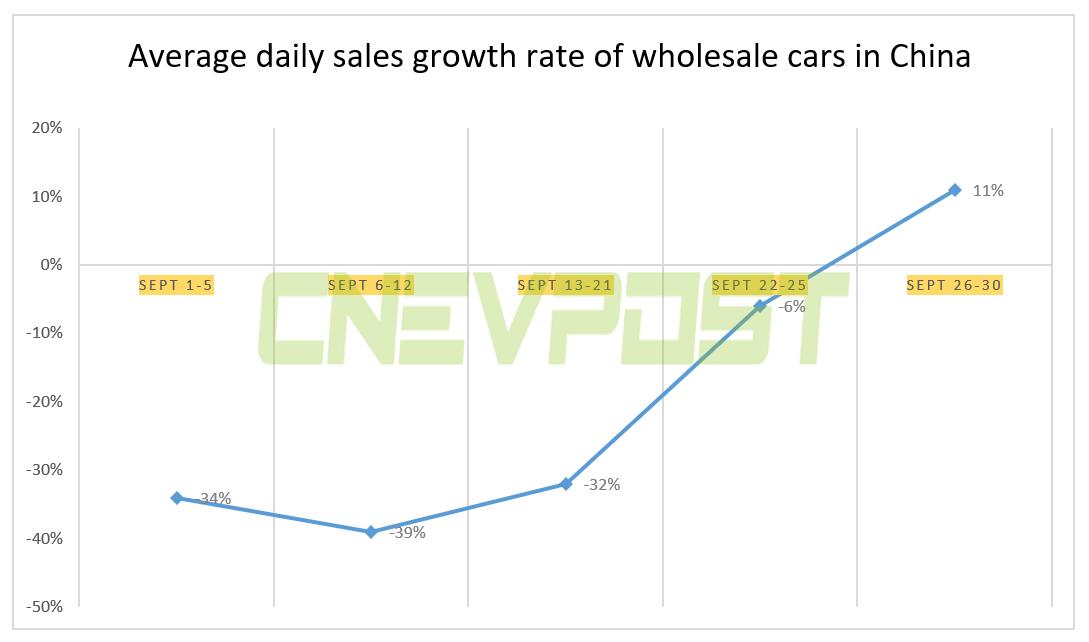The performance of China's auto wholesale sales improved significantly in late September in terms of average daily sales.
Chinese car companies' wholesale sales have started to increase significantly in late September, possibly indicating that the worst moment of the auto chip shortage has passed, said analysts Yu Te and Lu Jiamin of TF Securities in a report on Thursday.
September and October are traditionally peak seasons for auto consumption in China, but chip shortages, higher raw material prices and the Covid-19 outbreak in Malaysia led to lower-than-expected auto sales in September, the team noted.
The auto market is now largely in a state where supply determines demand due to the chip shortage, the team said.
However, data from the China Passenger Car Association (CPCA) showed that wholesale sales had started to strengthen in late September.
Citing data from the CPCA, the team said:
In the first week of September, daily wholesale sales averaged 26,000 units, down 34 percent year-on-year.
In week 2, daily wholesale sales averaged 30,000 units, down 39 percent year-on-year.
In week 3, average daily wholesale sales were 39,000 units, down 32 percent year-on-year.
In Week 4, average daily wholesale sales were 68,000 units, down 6 percent year-on-year.
In week 5, average daily wholesale sales were 140,000 units, up 11 percent year-on-year, and wholesale sales had started to strengthen by the end of September.
September wholesale sales were an overall 16 percent year-on-year decline, up 18 percent from August.
(Graphic by CnEVPost)
With chip supply gradually improving in the next 3-5 months, China's auto industry is expected to enter the inventory-raising phase, and carmakers' production and wholesale sales are expected to gradually pick up, TF Securities said.
Bosch China President Chen Yudong also said at the company's Technology Innovation Experience Day this week that automotive chip supply was slightly better in September and October. But he also mentioned that at present, it can only meet less than 50 percent of demand.
Before the first half of this year, the supply gap was about 20 percent, meaning that customers who booked 10,000 cars for chip usage could only get chip supply for 8,000 cars, he said, adding that this did not cause much of a problem at the time.
But from July, Bosch can only meet less than 20 percent of the order, and by August there is no improvement, he said.
Chen expects the supply of chips for the automotive industry to return to the situation before the first half of this year next year, that is, there is a gap of about 20 percent.

